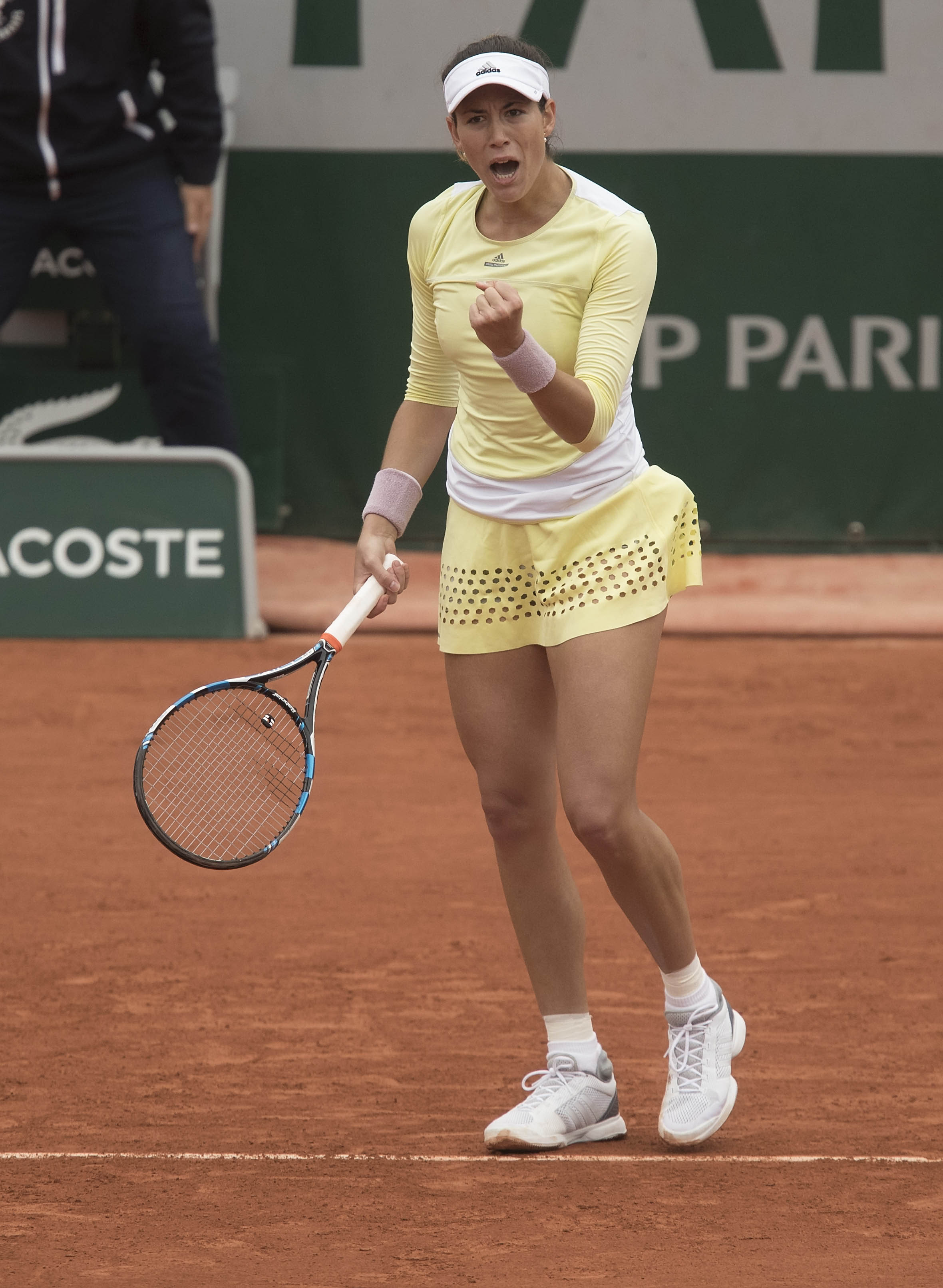![Tennis Channel Court Report: Muguruza stuns Serena [video : 85411744]](http://videos.usatoday.net/Brightcove2/29906170001/2016/06/29906170001_4927451987001_video-still-for-video-4927419944001.jpg?pubId=29906170001)
PARIS — For Garbiñe Muguruza, winning her maiden Grand Slam at the French Open Saturday could be just the start of her "young" career. What comes next is up to her.
A sport that was dominated by teens for much of the 1980s, ‘90s and early 2000s lately has belonged to a 30-something named Serena Williams. But Saturday Muguruza, 22, became the youngest Grand Slam champion in four years and only the second major winner born in the 1990s.
![Tennis: French Open S. Williams vs Muguruza [image : 85399806]](http://www.gannett-cdn.com/-mm-/af9f52878b885dbb0901cac852452150a42c299d/c=60-0-3170-2658/local/-/media/2016/06/04/USATODAY/USATODAY/636006400493724027-USATSI-9323955.jpg)
Muguruza, a Spaniard ranked No. 4 in the world, won the third title of her young career. It’s now become about the slow burn, and Garbi (as she’s adoringly known by Spanish fans) has climbed steadily since shocking Williams here two years ago in the second round.
Last year Wimbledon was her major final debut, and this year she won a Grand Slam for the first time — both against Williams.
“A star is born right here,” Chris Evert said on Eurosport about Muguruza. “Women’s tennis has been looking for this lady. Serena has had it for so long … I don’t think it’s going to be a change right now, but eventually the Williams sisters won’t be in tennis, and we need young stars. She fits the role on and off the court.”
Tennis fans know Muguruza well, and her game has become more menacing as she’s matured: She stands six feet tall, thwacks the ball as hard as she can off of both wings and has continued to hone the mental side of her tennis. She’s been helped along by respected coach Sam Sumyk, who guided a then-22-year-old Victoria Azarenka to world No. 1 and the Australian Open title in 2012 and 2013.
![Novak Djokovic, Andy Murray battle for first French Open titles [oembed : 85410798] [oembed : 85410798] [oembed : 85410798] [oembed : 85410798] [oembed : 85410798] [oembed : 85410798] [oembed : 85410798] [oembed : 85410798] [oembed : 85410798] [oembed : 85410798]](/Portals/_default/Skins/PrestoLegacy/CommonCss/images/smartembed.png)
“I’m proud of her … because it’s not easy,” Sumyk said. “You media sometimes say this one should be ‘the next,’ but until [it happens], it’s complicated. It can mess up a little bit in the player’s brain. Now it’s done, it’s finished. Her name isn’t going to be a ‘potential Grand Slam winner’ anymore. It’s done. We can move on.”
Moving on in women’s tennis is the hard part, however. Williams, 34, has proven to have staying power, with 21 major titles to her name and countless weeks at No. 1.
Since Angelique Kerber upset Williams at the Australian Open in January, the German has had a hard time maintaining her consistency, and nearly two weeks ago she was bundled out of this event in the first round.
So how does Muguruza, who will take over as No. 2 in the world behind Williams on Monday, make sure she doesn’t have a post-major letdown? Or worse, meltdown?
“The story about expectations, I have already put it away,” Muguruza said in a roundtable interview Saturday night. “Sometimes it’s not a good thing to think about. I felt it. This is just a ‘Boom!’ of energy for me to win a Grand Slam. From now on, I’m just going to try and keep my level and forget about all of this, ‘Garbiñe has to win’… crap.”
It’s at the utterance of “crap” that Muguruza cracks herself up, the kind of laugh that has made many inside the sport a fan.
She realized after her Wimbledon final run that she would be one of “the hunted,” but said Saturday that’s what she prefers.
“I will not change it,” she said, smiling. “I prefer to be hunted compared to the other way around… I don’t know how you say it.”
But she does know how to play it. The mental approach Saturday was point by point, shot by shot.
“At 22 she is a great player, she likes to go for her shots,” said Conchita Martinez, the Spanish captain for the Davis and Fed Cup teams as well as a mentor to Muguruza. “In moments when other players can be very tense, she goes for it. That’s something that Serena does, too. That’s what you need to do.”
Muguruza seems to know exactly what she needs to do.
“I’ve had some moments: ‘Boom!’ Great result … and then not so great results,” she said. “What I’m trying to get is more consistency. It’s not about just winning this tournament. I did. But … little by little, I have to grow my confidence, knowledge and power. That’s what you need to be good.”
That’s what you need to be great – and to win Grand Slams.
PHOTOS: FRENCH OPEN WOMEN'S FINAL
![Best of the 2016 French Open finals [gallery : 85397936]](http://www.gannett-cdn.com/-mm-/e9c2a071da8b3e45df5df56d86f7a0cf50868c47/c=204-0-3983-3230/local/-/media/2016/06/04/USATODAY/USATODAY/636006399743666411-USATSI-9323940.jpg)


